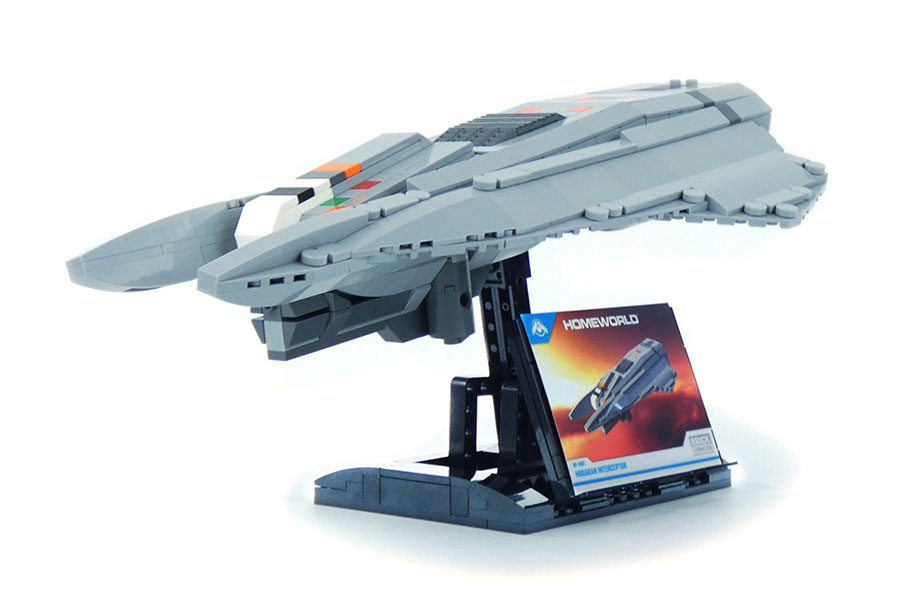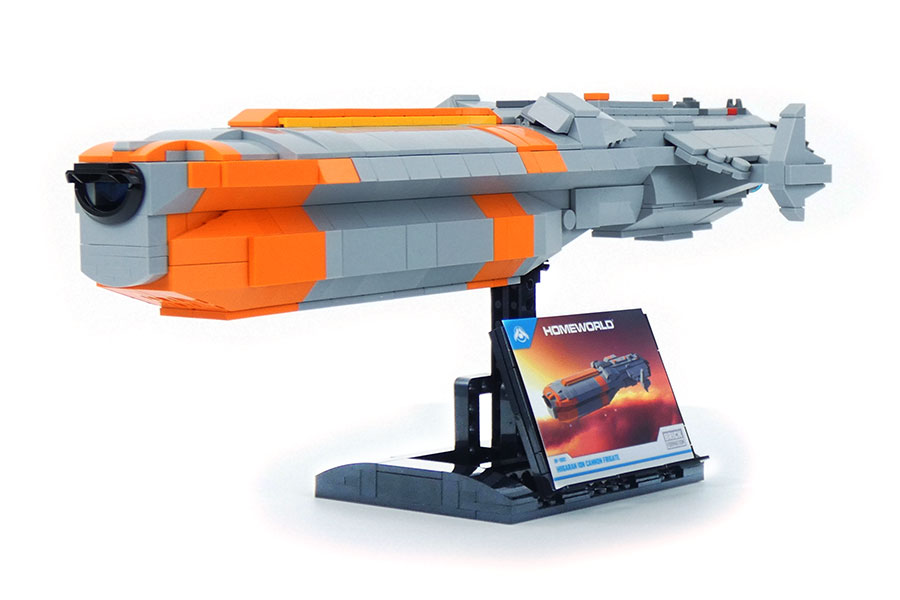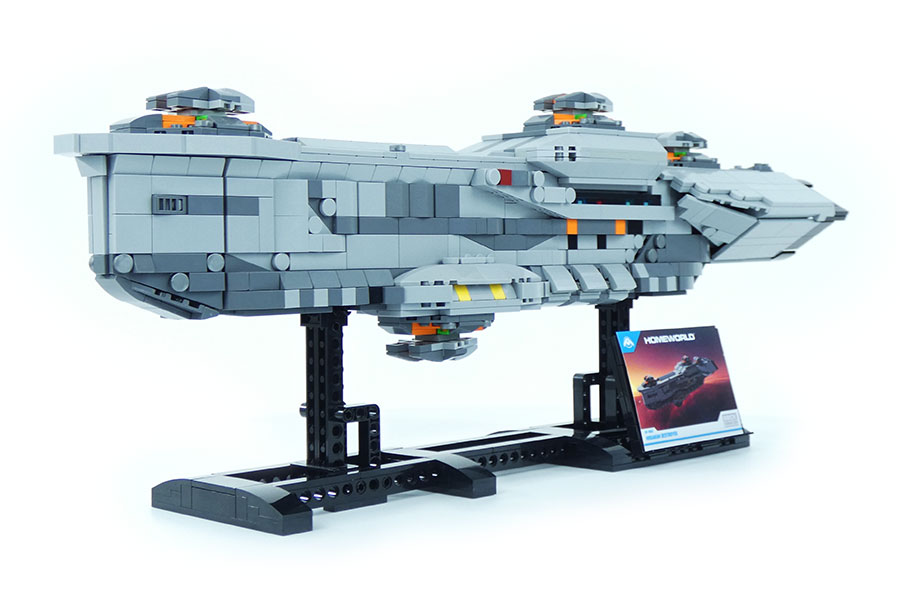These gorgeous Homeworld Lego sets are officially licensed, and really expensive
Also, they're not actually authorized by Lego. Is that a problem?
The Overwatch Lego sets are pretty cool, but for my money they don't hold a candle to the Homeworld kits available from a company called Brick Formation. Three ships, the Hiigaran Interceptor, Ion Cannon Frigate, and Destroyer, are currently available, and more are on the way from the Kushan, Taiidan, Turanic, and Vagyr factions.
These blocky ships look sweet, and they are an officially licensed Homeworld product, developed "in affiliation with Gearbox Publishing." The legality of the Lego half of the equation is little less clear-cut: The kits are "made from genuine Lego elements," but the site also specifies down in the fine print that the Lego Group "does not sponsor, authorize or endorse Brick Formation products."
I thought that maybe Brick Formation was working around potential legal entanglements by selling these Homeworld ships not as Lego sets, but as "brick-built collectibles." The images and teaser videos all show the ships in a fully-assembled state, suggesting that's how they arrive, but a pictorial review of the kits at Technabob confirms that they do in fact come unassembled: You either build it yourself, or you lose a piece, get mad that you can't finish it properly, and then find the lost piece six weeks later by stepping on it when you're not wearing shoes.
Whatever their legal status, these things are expensive. The 500-piece Hiigaran Interceptor goes for $250, and that's the cheapest of the bunch; the 1365-piece Hiigaran Destroyer costs $575 dollars. I really like Homeworld, but... no. Not even close to that much.
The kits were designed by noted Legosmith and 10K Club member Aaron Fiskum, and the Hiigaran Destroyer design has actually been kicking around for a few years: Fiskum posted it on Reddit in May 2016. Brick Formation is also working with Gearbox to create kits based on Homeworld: Deserts of Kharak, the ground-based prequel that lacks the iconic vehicles of Homeworld but is still an outstanding RTS.
I've emailed the company to ask about the legal status of its unauthorized Lego kits, and will update if I receive a reply. Have a look at all three ships in the set down below.
Thanks, Kotaku.
The biggest gaming news, reviews and hardware deals
Keep up to date with the most important stories and the best deals, as picked by the PC Gamer team.
Update: Brick Formation explained in an email that Lego has a "Fair Play" statement, contained in all Brick Formation packaging and manuals, indicating that it is not affiliated with or endorsed by the Lego Group in any way. A rep said the company takes the statement "very seriously."
"You can consider Lego elements to be the paint to our canvas and we respect the Lego Group's product as such. There are other third-party set creation companies out in the Lego-verse that use genuine Lego elements for their products. We are certainly not the only company in the Lego community doing custom kits. We've focused on creating licensed material against an IP that Lego hasn't engaged with," the rep explained.
Brick Formation creates the designs using Lego elements "and/or using various software programs available for design using virtual elements," as well as all artwork instructions, packaging, and collector cards. Testing is performed with both novice and advanced Lego builders, and of course everything has to be approved by Gearbox before production begins.
"As you can imagine, sourcing new Lego elements in third party markets is not a low cost operation," the rep said. That, along with their rarity—only 100 of each kit are being produced—probably goes a long way toward explaining why they're so expensive.




Andy has been gaming on PCs from the very beginning, starting as a youngster with text adventures and primitive action games on a cassette-based TRS80. From there he graduated to the glory days of Sierra Online adventures and Microprose sims, ran a local BBS, learned how to build PCs, and developed a longstanding love of RPGs, immersive sims, and shooters. He began writing videogame news in 2007 for The Escapist and somehow managed to avoid getting fired until 2014, when he joined the storied ranks of PC Gamer. He covers all aspects of the industry, from new game announcements and patch notes to legal disputes, Twitch beefs, esports, and Henry Cavill. Lots of Henry Cavill.


